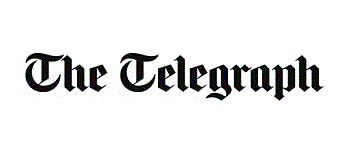
Karl Rove launches ‘Bush legacy project’ with Iraq war claim
December 6, 2008
by Philip Sherwell
Karl Rove made the claim as the president’s inner circle launched an unofficial “Bush legacy project”, with their old boss preparing to leave the White House next month.
The final mission on behalf of President Bush is reportedly being spearheaded by two trusted member of his Texan kitchen cabinet – Mr Rove, the architect of his two White House election triumphs, and Karen Hughes, his former communications chief.
They have been meeting senior figures in the current Administration to discuss how to “roll out the president’s legacy”, according to Stephen Hayes, a prominent conservative commentator and Vice-President Dick Cheney’s official biographer.
Part of that strategy is to “set the record straight”, a senior Republican strategist told The Sunday Telegraph, and Mr Rove’s assertion on Iraq appears to have been an opening salvo in that campaign. He is the most senior White House insider to state so firmly that the president would not have gone to war had the intelligence been different.
The claim was immediately dismissed by Mr Bush’s critics, who argue that his administration was intent on toppling Saddam and deliberately manipulated intelligence about Iraq’s weapons programmes simply as a pretext for the invasion.
Mr Rove made his comments during a wide-ranging and vigorous defense of Mr Bush’s domestic and foreign policy record in a lively, Oxford Union-style debate sponsored by Intelligence Squared US in front of a packed audience in New York.
Opposing the motion that Mr Bush was the worst president of the last 50 years, Mr Rove said that after the terrorist attacks on September 11, the Administration became increasingly concerned about Saddam’s human rights abuses and his breach of United Nations Resolutions.
But the greatest worry was that he possessed weapons of mass destruction. “Absent that, I suspect that the Administration’s course of action would have been to work to find more creative ways to contain him like in the 90s,” said Mr Rove.
He went further than Mr Bush himself, who told ABC last week: “I wish the intelligence had been different” but did not take responsibility for its flaws. Asked specifically if there would have been an Iraq war if the intelligence had been correct, Mr Bush said: “That is a do-over that I can’t do. It’s hard for me to speculate.”
Mr Bush’s friends and advisors have started a loosely co-ordinated campaign to defend his record and promote what they see as his achievements in interviews, speeches and private comments to influential audiences.
“They think this is a good time to try and set the record straight,” said the Republican strategist with close White House ties. “The president has always made clear that he’s not interesting in looking back or second-guessing his decisions. But his friends don’t want that to mean the ground is ceded to his enemies as his presidency is debated.”
Indeed, Mr Rove decried what he called “a peculiar form of Bush hatred that caused people to lose their rational senses about the man”. He argued that there was a visceral, anti-Bush sentiment among those who believed the bitterly-disputed 2000 election victory over Al Gore “was illegitimate”.
But nobody’s reputation and record is as linked to Mr Bush as Mr Rove. Asked about the president’s poor opinion poll figures, he stated: “We were asking the country to do tough things for a long time.”
The president’s allies have also been keen to correct what they see as the misinterpretation of his recent “exit interviews”. His more humble comments should not be viewed as expressions of regret, they say.
Most notably, in an ABC interview, Mr Bush said that he had been “unprepared for war”. This was a description of how he felt when he entered the White House, eight months before the September 11 terrorist attacks, not a reflection of his decision to go to war in Afghanistan or Iraq, said allies.
During the same interview, Mr Bush also said he was “sorry” about the financial crisis. But the president’s friends have again making clear that he was expressing his feeling about the plight of Americans suffering during the current economic downturn rather than an apologising or acknowledging responsibility.
Indeed, in the Intelligence Squared debate, Mr Rove cited the financial deregulation passed at the end of the Clinton administration as contributing to the country’s economic crisis.
He lauded the tax cuts of the first Bush term for turning around a Wall Street slide and defended the president’s initiatives on education, prescriptions for the elderly and Aids in Africa.
Mr Rove also praised the president for keeping America safe from another terrorist attack after Sept 11 2001 and said that the US was winning the war in Iraq.
As Mr Bush’s friends and foes argue over his legacy, the president himself is looking forward to life after the White House. And the setting for that emerged last when it was reported that the Bushes have purchased their next home in the upscale Preston Hollow neighbourhood of Dallas.
The couple’s friend and accountant Robert McCleskey bought the 8,500 sq ft, four-bedrom red-brick house at the end of a secluded tree-lined cul-de-sac on their behalf. The purchase price is not known, but its market value is just over $2 million, according to property records.